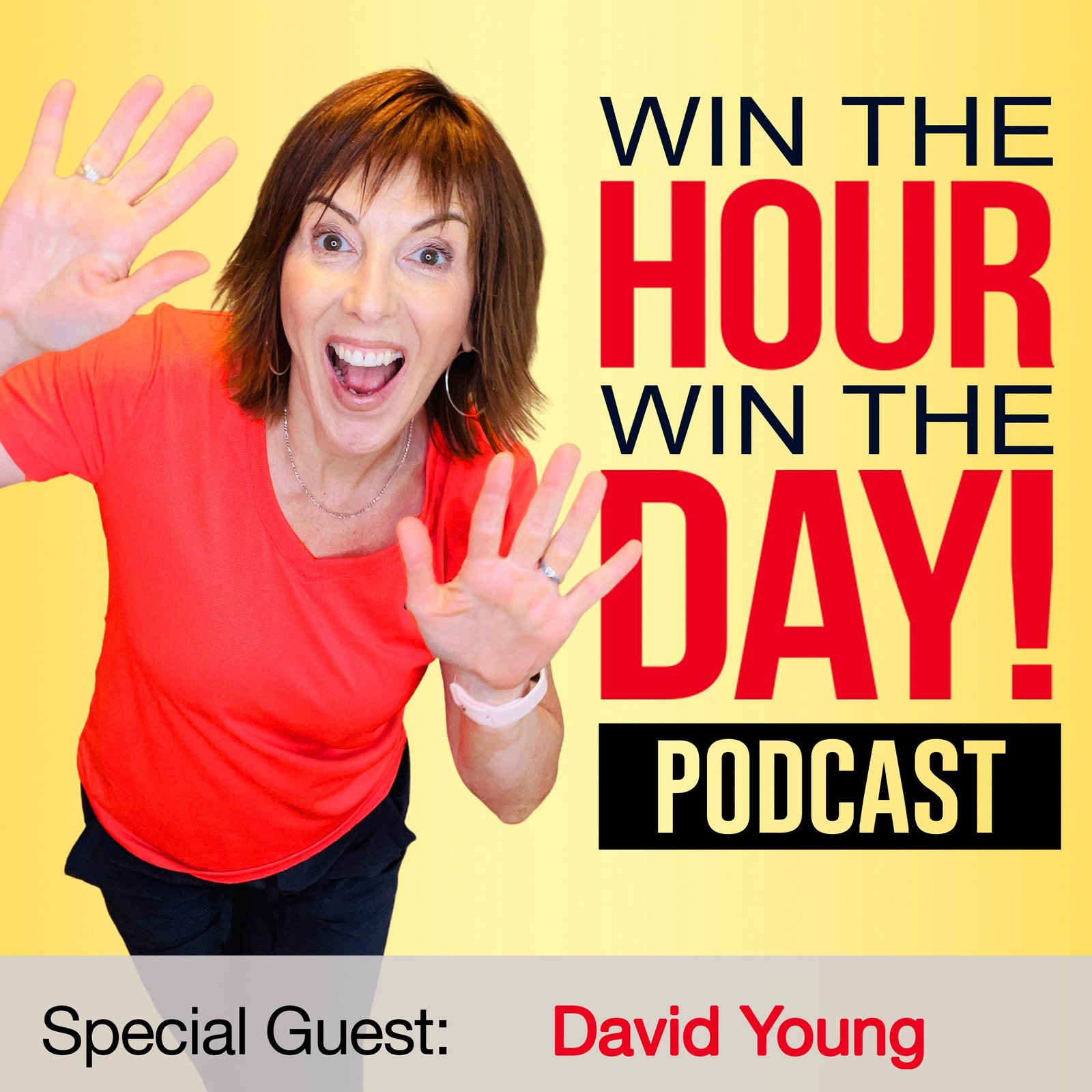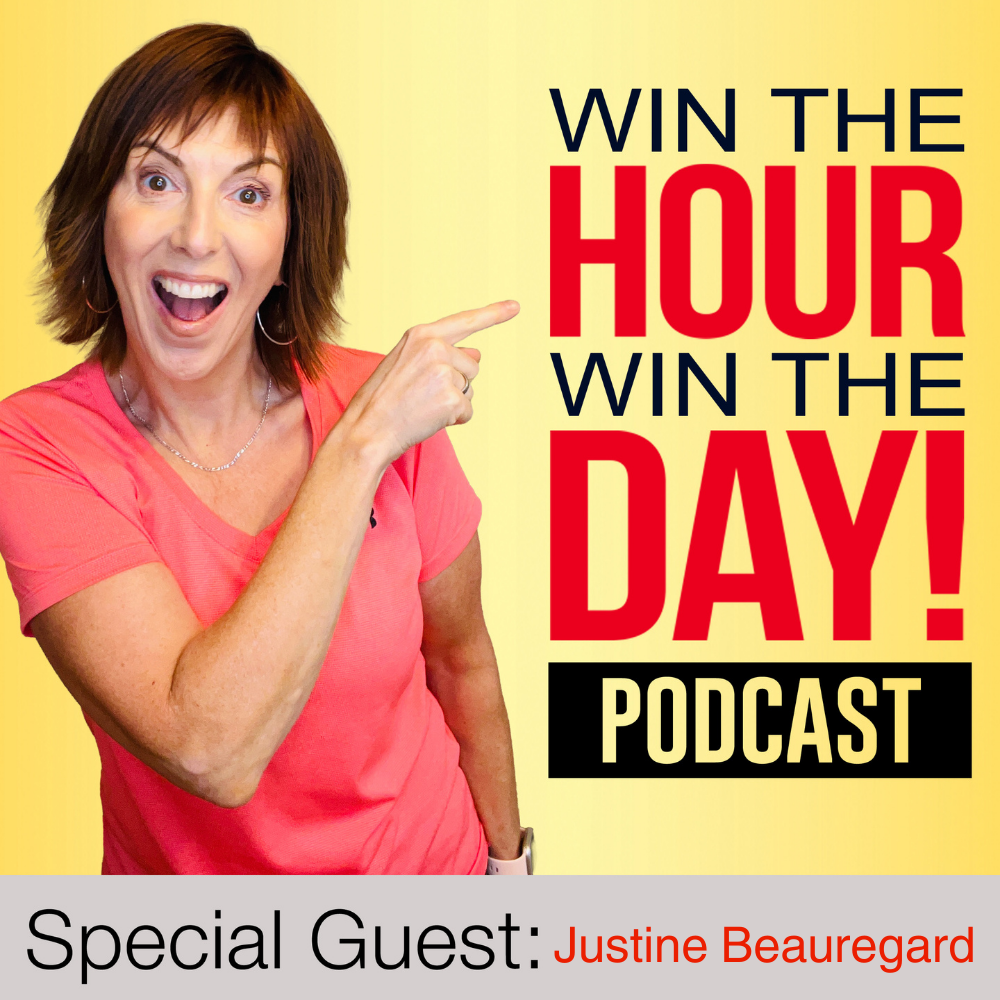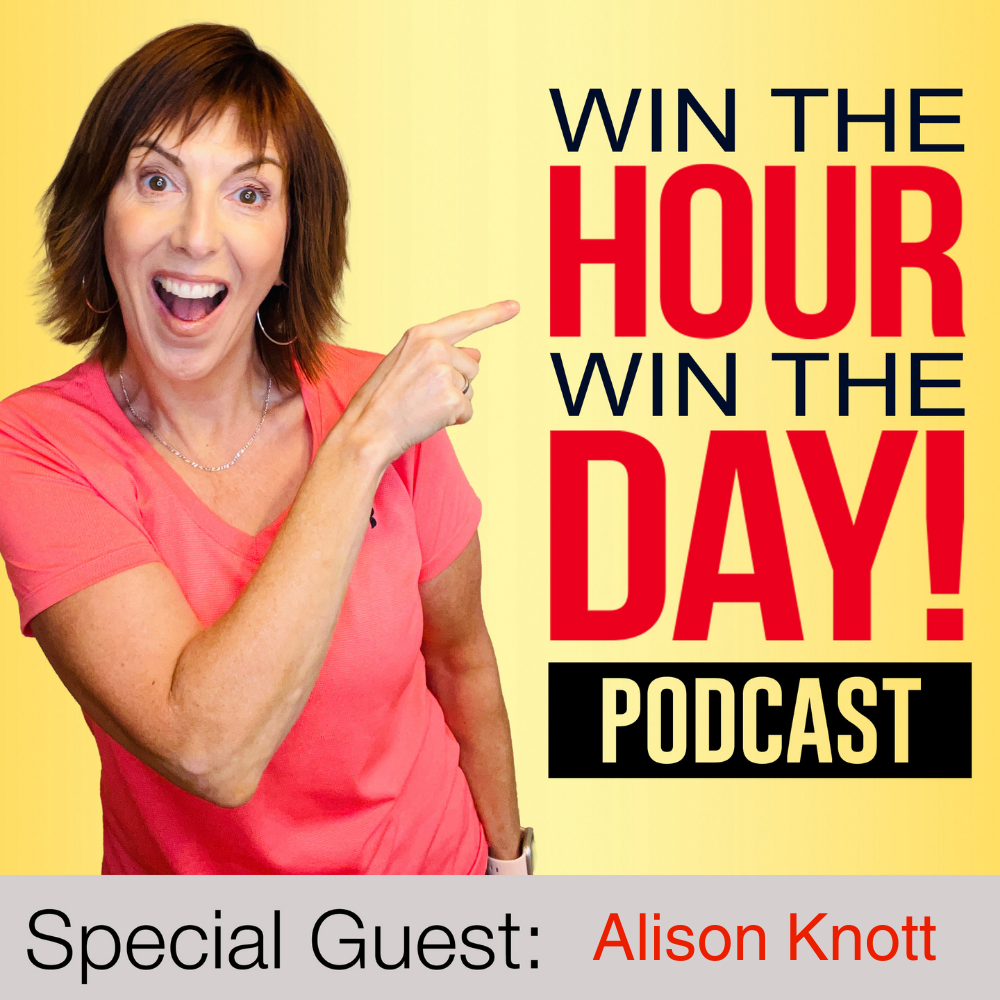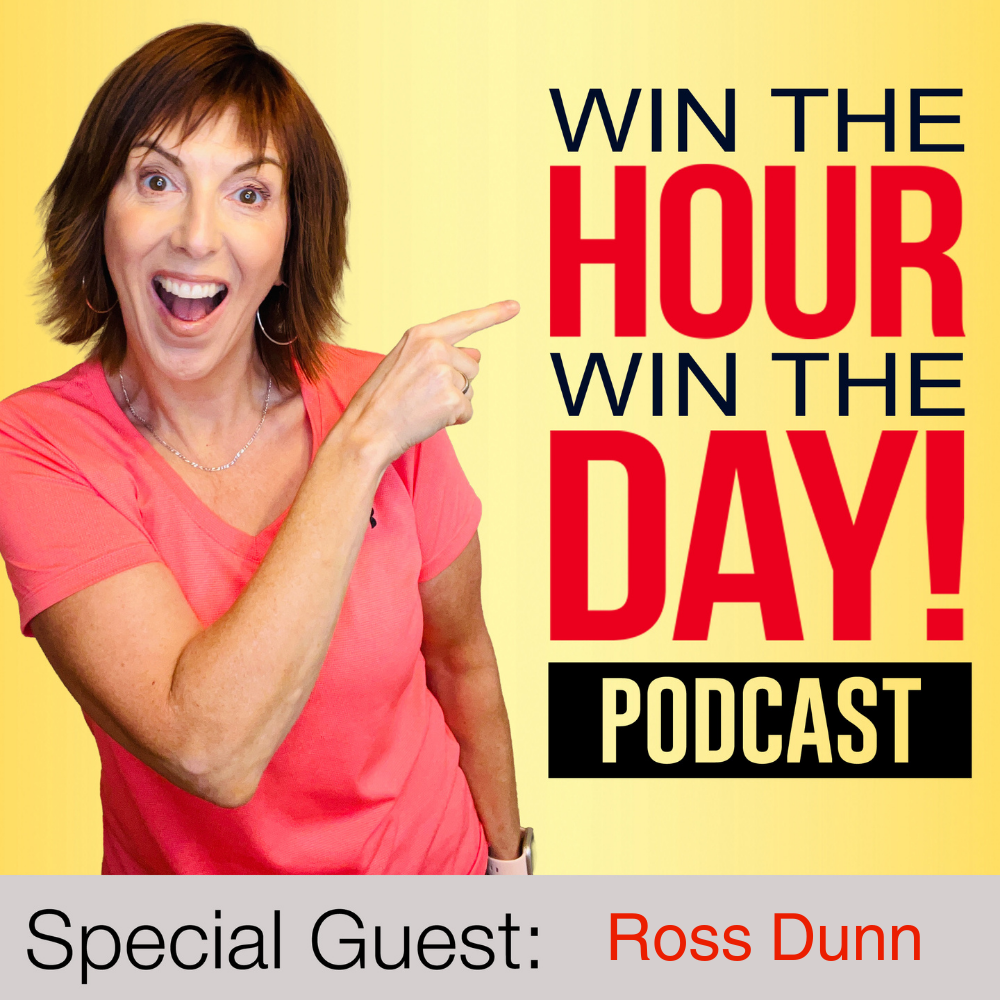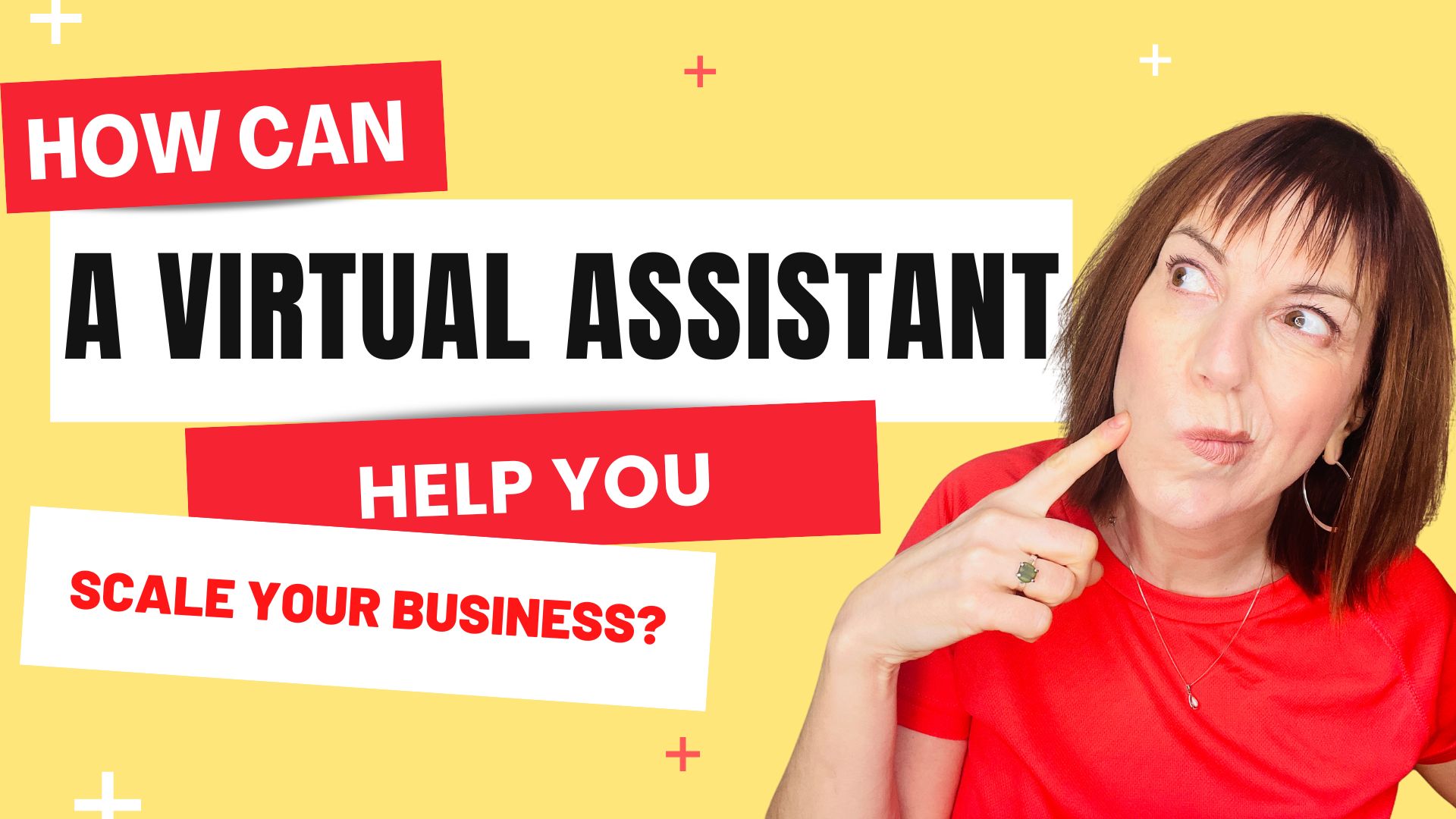Episode Summary
This week’s episode of Win The Hour, Win The Day Podcast interviews, David Young.
Turn Your LinkedIn Posts into Binge-Worthy Stories with David Young
Unlock the secrets of captivating storytelling in this episode:
– Learn to craft posts that grip your audience like a Netflix series.
– Discover the power of a strong opening to hook readers instantly.
– Gain insight into transforming everyday experiences into engaging stories.
Don’t miss out on these practical tips to revolutionize your content on LinkedIn and beyond!
Power Personality Quiz! http://winbacktimequiz.com/
Win The Hour, Win The Day! www.winthehourwintheday.com
Podcast: Win The Hour, Win The Day Podcast
Facebook: https://www.facebook.com/winthehourwintheday/
LinkedIn: https://www.linkedin.com/company/win-the-hour-win-the-day-podcast
You can find David Young at:
LinkedIn: https://www.linkedin.com/in/david-young-mba-indy/
#KrisWard
#ContentCreationTips
#LinkedInStrategy
Win The Hour Win The Day
https://winthehourwintheday.com
David Young Podcast Transcription
[00:00:00] Kris Ward: Hey everyone. Welcome to another episode of Win The Hour Win The Day, and I am your host, Kris Ward. And today in the house, we had David Young. He is a LinkedIn content coach.
[00:00:10] Now I’ve been chatting with David. So yeah, we’re going to lean into LinkedIn and we all love LinkedIn, but really I think this information could serve you anywhere. Would you agree, David?
[00:00:20] David Young: Oh, absolutely. Storytelling and content is universal. Yeah wherever you have a need to tell a story or create content, this certainly is applicable.
[00:00:28] Kris Ward: Okay. So here’s what I find exciting. You’re going to talk to us about creating a post and almost like turning it into a Netflix series. Am I saying that correctly?
[00:00:38] David Young: Yeah, it’s a, it’s using what you would see in the shows that you watch on whatever streaming service. There’s a formula they all use to get you to watch. You can use. You can take part of that now, obviously, it’s a little bit longer because the series is, six or eight episodes, so they’re doing it over a longer period of time. You’re doing it over a very condensed period of time in one post or video, but you can take their procedure and you can apply that to your content.
[00:01:04] Kris Ward: Okay let’s dive in. Where do we start?
[00:01:06] David Young: Absolutely. The first thing is a hook, so it’s no different than writing, a general post, but in a story, you’re trying to get, you want them to you want to know what happened. So for example, I just watched the good girl guides or murder on Netflix recently.
[00:01:21] And the opening scene is a woman who’s walking, it’s dark. It’s she’s got a blow to the head. You have no other context. And then she just like walks into the woods and disappears. And that’s the opening scene. So immediately you’re like, Oh, I want to know, I want to know what happened to her, what is going on.
[00:01:36] So immediately you’re hooked. The post I wrote recently was about I, I get into, when I go to the grocery store, like drugstores to buy just like one or two things, I always encounter the one person I’m going to check out. There’s one person in front of me who’s never checked out before in their lives.
[00:01:51] So I wrote a post about that. And so my hook was, why is it when I go to Walgreens to get, I just, I was on the road. I just wanted to travel toothbrush and travel like Listerine. Why did that take me 25 or 30 minutes? That was my hook. So the idea is you read that and you’re like, I wonder, why did that take so long, right? You’re just trying to generate a little bit of interest. And so that’s how you set the scene.
[00:02:13] Kris Ward: Let me jump in there. Let me jump in there. Sure. So I think this is where it gets stuck. I think you’re right. And now I just wrote something today and I was talking about recently I started kayaking and then somebody was saying, Hey, you should try paddle boarding.
[00:02:30] And then I went online, I looked at everything paddle boarding and it was like, Oh, just you’re wrestling the board to like, as if it was alligator hot mess. Ass over tea kettle. I’m just going to say, it was just awful. So I the post was, I couldn’t find anyone when I did go to paddleboard and I’m not making it, the post is better written than what I’m saying right now.
[00:02:49] But when I did go to paddleboard, it was easy. I stood up. It was fine. And there’s all this drama because everything online. Was about the drama and I tied it into business. You know what? Streamlining your processes, all that stuff. That’s not sexy. It doesn’t make her a viral video saying how you slept on your mattress.
[00:03:03] The first year that’s more interesting. So I compared it to this paddleboard story of that wouldn’t have made a viral video, me standing up and sailing away and everything being fine, but where I drag this story out like my grandfather, where I think I go wrong is I’m telling a story from the beginning.
[00:03:21] So I said, something along the lines of, I recently started kayaking and this led to, Hey, you now need to paddleboard. So I’m starting at the beginning when maybe I should have been starting like, splashing around and she’s wrestling the paddleboard like an alligator. I’m thinking I can’t do that. And then go back up and start the story over.
[00:03:41] David Young: Yes, that’s correct. So the idea is you’re trying to create as much intrigue in that opening, right? And whether it’s a video or a show or a post, you want that first line, you want people to read that. And they’re trying to fill in the gaps of what is she talking about?
[00:03:57] I want to know more. And then, like you said, then you back up, you have the hook. And then the next part is set the scene. So now you’re giving, my post I talked about I was out of town. We’re on our way to dinner and I wanted to stop before I didn’t want to do it on the way home.
[00:04:13] So I just wanted a toothbrush and Listerine with a Walgreens on the way. So you’re just like, okay, this is a little bit disjointed. Like it takes a long time. He’s going to dinner. You’re just trying to, you don’t want it to be obvious. What you’re talking about, because you want just like the show, right?
[00:04:26] Netflix wants you to keep watching. You want people to keep reading or watching the video. And so that’s the next thing. So you could start with Wrestling an alligator splashing around. What’s that? And then, Hey, I was thinking about switching away from kayaking. Someone mentioned paddle boarding.
[00:04:42] Okay, and then you’re doing it. And so that’s number two. So you have a hook, you have set the scene. Three then as you start to provide some details. So for me, it was like,
[00:04:49] Kris Ward: all right, because you’re saying a lot of really valuable stuff. I did promise to interrupt you, remember I said that, okay, because, and I would say compliments to you, the more I interrupt you, the more fascinating stuff you’re saying.
[00:05:01] So I think we’re, as a recovering Russia holic. I’ve been accused that my brain is going faster. And so sometimes it might turn to you if you’re in the room and I say something and you’re like, what are you talking about? And I’m like, oh, I’m sorry. I had half a conversation in my mind and I just included you.
[00:05:17] So I’m so used to having, start from the beginning, be conclusive, don’t be jumping all over the place. And. So I’m trying to do that, but you’re right. When you watch a movie, like a really good movie, you’re five minutes in and you care. They’re not doing a slow climb, like a Hallmark movie and, Oh, she’s new to town.
[00:05:35] And here we go. We know that. I know that. That makes sense. It’s Whoa, what’s going on? I don’t even, sometimes you’re reading it, you’re being hooked and you’re like, okay, I don’t care, but I still have to know there’s an open loop here. So again, just, I know you don’t have as one of your steps, but it’s almost don’t start the story from the beginning. Okay. Okay. All right. Lesson learned.
[00:05:57] David Young: Yeah, it’s you can think of any movie, I’m trying to think of a movie I watched recently that did that like the usual suspects of Jameer with that movie. Like it starts, like there’s a guy on a bridge and you can’t really see him and it’s dark and it looks like they’re on a boat and then you’re just like, what, like what’s happening?
[00:06:12] And then it backs up. And like you said, immediately within a few minutes, you’re like, I just want to know what’s going on. It doesn’t start from his story from the beginning. Yeah. Go all the way through.
[00:06:21] Kris Ward: Oh, I barely have time to talk to you, David. I got to go read it. Rewrite everything now. And I don’t know. And you know what, like what I find really powerful information. What I get so excited when people say this to me about things that I teach is. We’re really profound stuff is so simple and almost obvious, but you just get lost in it. So we know, I know if somebody watching, I’ve listened to stories and read books and I’ve consumed content.
[00:06:49] This I’m not on the planet six months here, right? I’ve had content and I know what engages me, but yet we get so lost when we sit down to write our own. It’s okay, it’s almost like essay writing in grade eight, start at the beginning and here’s whatever. Okay. All right. So we know
[00:07:04] David Young: an analogy to that is writing posts. You see a lot of like paragraph posts because people have been so ingrained to write like word documents in school, but we don’t write content that way. So it’s the same kind of thing.
[00:07:14] Kris Ward: Yeah. I don’t do that. At least I don’t do that. I don’t write in paragraphs. Okay. So we want to intrigue. We don’t want to start from the beginning story. We’re going to start with the hook and continue with your wisdom.
[00:07:26] David Young: We have the hook. We’ve set the scene. And now step three is we want to start to provide some details. So like in the show, good girl guide to murder, then you start to figure out okay, that girl is presumed to be dead. Her boyfriend was charged with the crime.
[00:07:39] He’s no longer alive. So you’ve got a lot of mystery. And then they start slowly over the series, filling in the gaps, right? So they’re giving you details as to the background. They’re not telling you what happened yet. You still don’t know. You’re introduced to characters. So in your post what I did was I’ve set the scene.
[00:07:55] I’m on my way to dinner. I’m out of town. I’m going into Walgreens. I find my toothbrush. I find my Listerine. Now I go to check out. And as always, it happens to me all the time. There’s one woman in front of me. It seems like she’s almost done. I’m thinking this is going to be great. She’s finished. I’m going to check out.
[00:08:10] We’re going to be on our way to dinner. But then that’s not the case because they’re running a sale on Coke products, and she needed to buy one more 12 pack to take advantage of this great sale. So now she takes off. She leaves to go find this 12 pack and she’s gone for what seemingly for a while.
[00:08:25] She comes back. It’s a Sprite, which is a Coke product. He scans it. It doesn’t scan. It’s not part of the sale. She has to leave again. He’s again, gone for what feels like forever. She comes back with seven up now. She already had a seven up. She was like, this is good. And I’m like, okay, we’re finally getting out of here.
[00:08:39] He’s scared to seven up. That seven up it wasn’t like scanning properly, wasn’t taking the discount. So now she’s gone again. And I joked in the post, I was like, it was like she was playing a game of supermarket sweep. It’s not the worst version of that game. Because she just, so finally I’m standing there and he looks at me and he’s are you in a hurry?
[00:08:55] And I was like, Oh no. I was like, I always factor in about 30 minutes every time I do this because I’m, this kind of stuff happens to me a lot. He did not get that joke. He just kept right on going. He finally came back. He didn’t appreciate your humor. Yeah, he didn’t, he either didn’t appreciate it or didn’t get it or both.
[00:09:11] And so there, I’m providing details and then I start to tell what happened in the story. So I’m slowly building. And then finally she came back a third time and then she didn’t have any, she didn’t come back with anything this time. And so then it was just like what do we do?
[00:09:25] And so finally he was like. I just need to get this guy going. And so he voided out everything he’d rang up for moving to the side. He then scanned my stuff and I was able to leave, which is like step five, which is like the reveal, like what happened? Step six is the takeaway. But so you’re
[00:09:41] Kris Ward: so what was the takeaway here?
[00:09:43] David Young: The takeaway was don’t ever go shopping with me when you only want two items. Unless you have a lot of time to kill. That was the takeaway.
[00:09:50] Kris Ward: So is that just humor? Is that just humor? Like, how does that relate to you and your business? Or are we overdoing stuff? Are we like being a commercial Oh, as a hockey player, Hey, when you get shots at the net, this is why you use Tylenol. So are we overdoing it when we tie it down somewhere?
[00:10:05] David Young: Yeah. Sometimes I think some, some posts are meant to be. Like that post for me was, there was supposed to be humor in the story, but I was also, but I was also using the story to educate a storytelling method. So the best way to do it.
[00:10:19] And if you’re doing, if you’re selling a product or services, you want to tell an interesting story, whether it’s funny, entertaining, whatever, but then also educates. Cause if you just do a straight, educational post, typically dry, boring. They’re not as easily remembered. If you’re mixing in.
[00:10:35] No matter whether you’re trying to give the most detailed educational post ever, if you can mix a story in, whether it’s personal or otherwise.
[00:10:41] Kris Ward: That was the post and the post is showing how you told the story. So there was, I was just knowing there was more to this and you being patient in a line kind of deal.
[00:10:50] Okay. So we’ve got the hook. We got to set the scene. And I think also to another mistake that I find as humans, when you’re, I guess if I’m telling a story to a friend of something that happened yesterday, I’m talking about what happened yesterday, but adding what I noticed really good storytellers, no matter how long ago, the story was you’re talking first person
[00:11:10] David Young: yeah, you can make it as recent or far away as you want, but you’re, the idea is you want the person you’re talking to the audience, whether it’s one person post, you want them to feel like they’re part of the story, like they can see themselves in the story. Like my idea with mine would be like, you’re picturing yourself in the Walgreens, you’re walking through the aisles with me, and then you’re standing in line watching this woman race all over the store to find this elusive, seven up 12 pack, right?
[00:11:37] And you’re just like, Oh, like I want, this is like frustrating me. I want to just want to check out. I just want to go, I just want to get to dinner. You want to have them feel, try to make them feel that emotion of frustration or anger or whatever.
[00:11:48] Kris Ward: I think to your point, I think if I’m telling a story, there’s you’re like, Oh my gosh, and this happened and there’s more dramatic, more drama there, even if it’s funny drama, right?
[00:12:00] But then I think with writing for, at least for me, you skim over to get to the point and you try to keep it short. Cause I’m always thinking, Oh, who’s going to read this, whatever. And I think the stuff that makes it interesting in person, like anything, how we talk and how we write are two different things.
[00:12:16] So I think these are some basics. But that so often, or at least for me, get forgotten when you’re writing a post because even describing the scene, like I said, okay, in this situation, like splashing around, give a little bit of description of, you’re like you’re wrestling an alligator, but I could have talked about it was a sunny day.
[00:12:33] It’s warm. I thought it was a good day to get wet since I’m going to fall in anyhow. Like there, there is painting the scene. I think we skim over that. I think you’re right.
[00:12:43] David Young: Yeah, for sure. I think it is the difference between talking and writing because when you’re talking, it’s easier to describe the scene, writing, you think of a good book or a good story, right?
[00:12:50] How much detail they’re giving you, the characters look like, their hair, their size, their clothes, their mood. They’re going, now obviously a book is much, you have much more time, so you do that, but even in a post that most it’s probably a minute, if you do a longer post, maybe a minute and a half to read, if they read the whole thing, But you’re still trying to get them to, you want, the goal is for them to skim it and then go back and read the whole thing.
[00:13:12] That’s really the main thing because you’re right. Most people do start, start by skimming to see if it’s going to be any good.
[00:13:18] Kris Ward: Okay. Oh my gosh. All right. Oh my gosh. Okay. So which one of these things should we dive deeper or do we just want to talk about what most people miss when they’re writing a poem, like when they’re writing a story?
[00:13:29] David Young: Yeah, that’s a good question. I think it’s up to you. I, what I’ve learned in working with clients is people struggle just with storytelling in general, like they don’t understand what is the story and then once they figure out like, oh, okay, like this trip wherever, or this activity is a story, then they struggle with these details.
[00:13:49] They’re, they want to just tell you again, like I went to the game and the home team won, right? And it was like the most dramatic victory ever. They totally, they leave out all the dramatics. It was just like, oh yeah, we went to the game and we had a good time. Whatever. And it’s that’s not really a story.
[00:14:04] Like it’s just a couple of lines of facts. So I’ve just learned to try to help people just evolve, draw it out, paint pictures, credit, you want people to feel, again, you want people to be in this. So if you go into a game or a restaurant and you want to be like people. I feel like they went, like my post yesterday was about, I took my youngest son to a concert on Saturday.
[00:14:23] My goal in writing that was that when you read that, you felt like you went to the concert with us. You had an experience, like I had two pictures of us, but I had a picture of the show and the crowd and the lights. So you, if you read it and looked at the pictures for that minute or two, you’d be like, Oh I feel like I experienced like part of that concert. Yeah.
[00:14:45] Kris Ward: and I think for so many of us, it’s taking me a really long time, and now I’m getting a little bit better. And even my team will say, I think that’s a story. The idea, one of the, I think your talents too, is taking everyday events and saying, there’s a story here and where so many of us, my, certainly I felt Oh my gosh, I don’t live that interesting of a life and there’s not that much story to tell.
[00:15:04] And so when I do things now, like when I did start rock climbing or kayak, I’m like, thank God, maybe there’s something here, but should they keep asking me for stories? But I think you’re talented about that. Go ahead.
[00:15:16] David Young: Thank you. No, she said she just got really obsessed with pickleball and then.
[00:15:19] She routed off like 60 seconds worth of all these pickleball things and I was like, that’s five posts. She was like, really? I was like, of course you want to share, like all your posts cannot be business related, right? You can’t just talk about this is what I do and it’s how I help you like every single time.
[00:15:33] You got to mix in personal interests, hobbies and stuff. And I was like, pickleball is really popular right now. A lot of people are getting into it. If you’re into it, talk about it, tell the story. She was like, oh, okay. So yeah, it’s like the everyday thing that you don’t think is. It’s not that exciting, but it shows your personality, it shows your interest and you’re attracting people that read that might be interested in her service maybe pickleball players too.
[00:15:54] And now you have a common bond, common ground in which to build the relationship.
[00:15:59] Kris Ward: Yeah. Okay. Oh my gosh. The ideas are flowing in here. Okay. Yeah. So back to some of the stuff that we miss the most, cause I hear, we’ve had people here talk about stories before and you see it all day long online yeah, I tell stories and craft to tell a story, stories.
[00:16:14] I get it. But I do think your breakdown of turning it into a Netflix series and the impact that And I think the two pillars that really make you stand out is the whole set it up like a Netflix series. And then the every day there are stories every day. Cause I really would not standing in line at Walgreens.
[00:16:32] I would have been hard pressed to find that the story in there, but you’re right. We’ve all been there. That, That gamble, which line do I get in? And then you see these people pulling away in the car and I should have stayed behind them. The drama of that is real. So I think the power of the everyday stuff that, which as I talk out loud to myself, it’s really like the comedians, the best comedians in the world, like Jerry Seinfeld is just doing relatable stuff that we’ve all experienced.
[00:16:58] That was incredibly mundane. And yet I know it’s really easy to think that’s not going to be interesting. Yeah.
[00:17:04] David Young: Yeah, that’s a great point. And Nate Bargatze does that a lot in his stuff now. Seinfeld did it. A lot of great comedians do it where you take what you would think is just not funny at all, but when you tell it in a way that’s entertaining and people relate to it, cause you’re like, Oh, that’s happened to me a hundred times.
[00:17:20] Then there’s humor in that, again, that common bond of Oh yeah, we’ve been, we’ve done that. That’s so frustrating. Or I hate it when that happens. And then it becomes, funny in that way. But it’s like anything else it’s practiced. Like you, You’re not naturally, if you don’t naturally do it, you won’t just start doing it immediately like anything else.
[00:17:36] But if you have a guideline or A framework, then you just start to, next time you go to write a story post, use that first one won’t be great, but the 10th one will be better. And, so on.
[00:17:48] Kris Ward: And are you generously going to share your framework? Where do we get that?
[00:17:52] David Young: Sure. Yeah. I can give it to you.
[00:17:53] If you want to put it like in the show notes. Yeah, I used, I use the acronym H so it’s H S P W R T. So to make it easy to remember, I came up, this is not great. Harry said, please. What really takes if you’re having a problem, hard time remembering that. So HSP WRT, which is hook, set the scene, provide details, what happened, reveal.
[00:18:21] Take away.
[00:18:22] Kris Ward: I would I can’t help myself. I would, I can’t even reach out to me. We can come up with a better acronym for you. That is, that’s a, not a long term plan for you. It’s just, yeah. Convoluted. I knew it wasn’t great. No, we can do better. We can do better. Okay. Fair enough. So we want to, even if we just have a, whatever we’ll just spell it out in the show notes then.
[00:18:45] Since you, we don’t have a PDF right now. So Perfect. Okay. So we’ve got, we want to talk first person. We want to give more details. Do we have an idea, short version, long version? I know it depends on time, but I think for, like I said earlier, so many of us are rushing to the point because we think we don’t have the attention span.
[00:19:04] What’s, does it matter on the day or I guess the depth of the story, what’s a good post, a long post, a medium post?
[00:19:09] David Young: No, I think it’s all, I think it’s dependent. I don’t think it matters on the day. I don’t, I haven’t seen enough. Depending on the day is a bit dramatic, but yeah, I think it’s, you want to use it’s when you’re writing a post, it’s always that you’re trying to find that magic.
[00:19:25] Trying to use like just the right amount of words, so if you need 600 words, you don’t want to use 601, but you also don’t want to use like 580, right? But you always just have, it’s all, it’s, again, it’s just playing with it. And what I do now is I’ll write, I usually write the whole thing, just start to finish.
[00:19:43] I don’t edit while I’m writing and when I’m done, I go back and read it. And then I asked myself is this really important? Is this, does this detail matter? If I took this out, does the story still make sense? And if it does, then I’ll just take it out. That’s because I’m the same thing. I put two months.
[00:19:58] My wife just tells me this all the time. She’s you put too much detail in your story. So you’re like, you can take some of those out. People don’t need to know that. I’m like, okay. So that’s what I asked myself. Okay, this is probably too much, but you just, but it’s a practice and as you more, you do it, the faster you can get.
[00:20:10] So it’s just tight and clean. I guess it can be, but still, provides the right amount of suspense and drama and entertainment and whatever you’re going for.
[00:20:19] Kris Ward: Yeah. You do have to be careful with that. I know that was something that I struggled with where in your case of the story of Walgreens, I might in the story of explain like, okay, I went to Walgreens.
[00:20:29] I don’t almost when you’re telling your friend’s story, it’s okay, the reason I was in this situation is because so and so called me. I was late. It was her birthday. And so then I’m always giving the backstory, especially in video, I would give the backstory to the story. And it’s no, you just got to get in there.
[00:20:44] People don’t care why you’re there. Just you’re at Walgreens, right? Or, okay, I’m on vacation. That adds a little interest to it, but not giving, I had a habit, particularly in video of giving the pre story. Okay, make it clear, make it tight, make it concise, get the hook and starting with the action, the energy, I think too, for the longest time we see hook is the title or some dramatic first sentence, but really the hook, a good hook is setting a good scene.
[00:21:10] So we’re just throwing them into the action versus our traditional definition of a hook is I don’t know, splashing dinosaurs. What went wrong? It’s Oh, okay, I gotta read this.
[00:21:19] David Young: Yeah. It’s. It can be a question. It can be a statement. You’re just trying to, yeah, some type of intrigue or something that you just want something that people are going to think, I want to know more like that’s really the main purpose of any hook video or written is I’m interested or curious as to what the next sentence says or the next line is, and that kind of builds throughout.
[00:21:40] That’s your main, that’s your main goal. Cause if the hook’s great and the rest of it doesn’t make any sense. But you can put a, a clickbait hook, but then the rest of the post has nothing to do with it. Like people don’t want that. So you want it to flow. There has to be some, sync between, how it all comes together.
[00:21:56] Kris Ward: And this may seem off topic. It is, but that brings you to my other random complaint is when You see a trailer for a movie, even on Netflix, and you’re like, oh, okay. I just watched the 32nd trailer. I know the whole movie. I know, oh, he’s gonna end up with her. He’s doing this, or he’s gonna be rescued.
[00:22:12] Why? Why are we doing this? I don’t need to see the movie now. Thank you. I, I don’t for all their amazement, you’re right. In some of their documentaries and some of their real, like they do really well with documentaries, like you’re in it. You’re just, you start seeing one, you’re like, okay, I didn’t know anything about formula one, but I’m two minutes in and suddenly I care.
[00:22:31] So they do a fantastic job of that. But boy, oh boy, when they do trailers for movies, I just don’t understand how, what, I don’t know who’s in those rooms. And they say yeah, let’s show the whole thing in 30 seconds and leave nothing to imagination. And they will come and want to see it all. Okay. David Young, where can people find more of your brilliance?
[00:22:49] David Young: Oh, thanks, Kris. Best place to find me right now is just on LinkedIn. I do have a common name, David Young, so if you do comma MBA for my second degree that did not help my career at all. I’m the first, I’m the first person to come up.
[00:23:01] So David Young comma MBA, and you can find me there. I spend a lot of time on LinkedIn, so I’m usually pretty, pretty readily available.
[00:23:08] Kris Ward: Okay. Fabulous. Everyone else, share this with a business buddy. Don’t let them flounder around by themselves. This is really good content, lots of takeaways here and really re look at your stories.
[00:23:17] And thank you again for all the reviews. I read each and every one of them. We will see you in the next episode. Thanks again, David.
[00:23:26] David Young: Thank you, Kris appreciate it.

